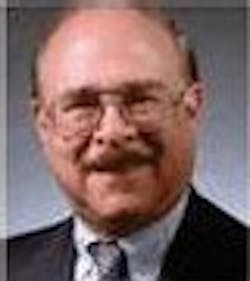By
Dick Caro, CMC AssociatesWHEN THE ISA SP50 committee was planning the standard that eventually became the technological basis for Foundation Fieldbus, most users on that committee strongly supported closed-loop regulatory control at the instrument level. The entire ANSI/ISA 50.02 standard was based on the need to support control at the field-device level in addition to, or perhaps instead of, control in a DCS. Today, we refer to that technology as Field Control.Over the years, installation of Foundation Fieldbus and Profibus-PA were promoted to reduce installation costs because field instruments can share the wiring back to the control room. Other installation cost savings came from reduced labor costs for “ringing-out” field connections, since addressing of field instruments is by tag name, not by the termination location on the I/O multiplexer. Both 4-20 mA analog devices and HART instruments are addressed by their I/O wiring termination slot. Since wiring termination assignments were no longer critical, documentation at the engineering level also could be reduced to simple block drawings.Now that thousands of fieldbus networks have been installed, it’s safe to conclude that only a portion of these expected savings were realized. Why were end users setting requirements for ANSI/ISA 50.02 in 1985-1990 so enthralled with Field Control? Are their objectives being met with today’s fieldbus-based control systems? The answer is: only partially.End users working on the ISA SP50 committee reasoned that Field Control would substantially reduce or even eliminate expensive, redundant, multifunction controllers needed for reliable DCS configurations. Field Control restores “single-loop integrity,” which is the criterion that allowed non-redundant analog control in the past. Reliability DCS analyses made redundant controllers a necessity because they’re responsible for many control loops. Our analysis was then, and remains today, that Field Control can be applied to all final control loops, all secondaries of two- and three-level cascades, and most simple feedforward control loops. DCS multifunction controllers would be responsible for all supervisory, advanced, and model-reference control loops.The reality is that DCS suppliers, realizing that much of their business might disappear if users reduced multifunction controllers, successfully promoted alternative strategies. DCSs or Process Automation Controllers (PACs), as they are beginning to be known, are being promoted to perform all feedback, feedforward, advanced, supervisory, and model-reference control during system startup. Then, the user gradually moves each control loop to field devices after successful startup and tuning. This strategy established a requirement for sufficient DCS controller capacity for the entire plant, and effectively prevented the elimination of controllers.Another DCS-supplier strategy has been to promote advantages of the control algorithm set that is available only in its DCS/PAC. Users often are not experienced enough to evaluate alternatives of using control function blocks available in Foundation Fieldbus instruments, and determining when they would be adequate. Once control schemes are locked into the “enhanced” algorithms only available in the supplier’s DCS/PAC, such control loops are no longer candidates for Field Control.End users on the ISA SP50 committee also wanted Field Control, so they would be free to build most of their control schemes independent of the DCS. Their reason was to restore competitiveness to the control systems marketplace, thereby reducing prices. Then and continuing into today, control schemes developed on one DCS are not very portable to other DCSs. Control schemes developed for Field Control are independent of the DCS and can be implemented with any DCS that can work with Foundation Fieldbus instrumentation.It’s estimated that about 80% of all control loops can be implemented with Foundation Fieldbus function blocks, without support of a DCS. Control loop types implemented with Field Control are those with fast cycle times, such as flow, pressure, and level, which load a DCS most heavily. When fast loops are removed from the DCS, leaving only supervisory, advanced and model-reference controls, use of commodity PC-based server technology becomes a possibility. Even redundant server technology is less expensive than multifunction process controllers.Field Control is only possible with Foundation Fieldbus instrumentation. It clearly is an advantage with real cost-saving potential, but it has been very lightly exploited for many reasons.Field Control is an idea whose time has come. It is a widely available and proven technology supported by most of the major DCS/PAC and instrumentation suppliers. If the information presented in this article is new to you, then my goal has been accomplished. Field Control is one of the few ideas promoted by the end user community that has emerged into widely available products. When presented with the facts, Field Control should be the objective for all new process control system designers.
Dick Caro is principal of CMC Associates, is a recognized expert on fieldbus technology and a founding member and Chairman of the Fieldbus standards committees. You can reach him at [email protected].


